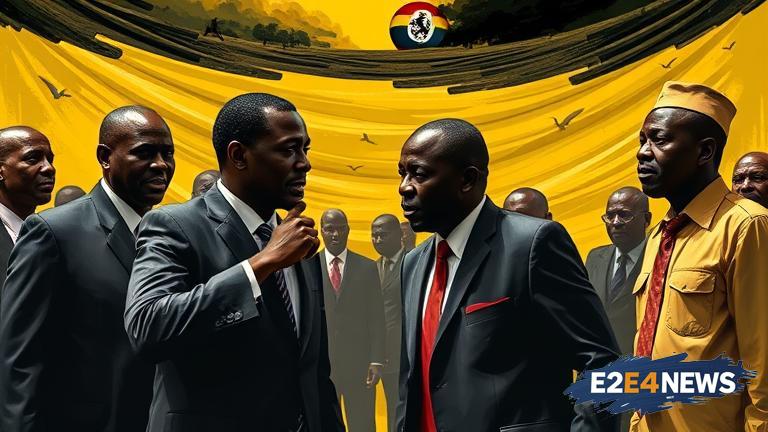The opposition in Uganda has expressed strong reservations about a recent agreement between the Ugandan government and the United States. The deal, which was announced earlier this month, aims to strengthen economic and security ties between the two nations. However, opposition leaders are skeptical about the true intentions behind the agreement, citing concerns over Uganda’s sovereignty and the potential for increased foreign influence. They argue that the deal could lead to a loss of control over the country’s natural resources and undermine its ability to make independent decisions. The opposition is also worried about the potential for the US to exert undue pressure on Uganda to conform to its foreign policy interests. This could have significant implications for the country’s relationships with other nations, particularly in the region. The deal has been seen as a strategic move by the US to expand its influence in East Africa, where China has been increasingly active in recent years. Uganda’s government has defended the agreement, saying it will bring significant economic benefits and help to strengthen the country’s security. However, the opposition remains unconvinced, and the issue is likely to be a major point of contention in the coming months. The US has been keen to strengthen its ties with Uganda, which is seen as a key partner in the region. The country has been a major recipient of US aid, and the two nations have a long history of cooperation on security issues. However, the opposition’s concerns about the deal reflect a deeper unease about the role of foreign powers in Uganda’s affairs. There are fears that the country is becoming too dependent on external support, which could undermine its ability to develop its own economy and make independent decisions. The issue has also highlighted the complex and often fraught relationship between Uganda and the US. While the two nations have a strong partnership on security issues, there have been tensions in recent years over issues such as human rights and democracy. The opposition’s concerns about the deal are likely to be closely watched by other countries in the region, which are also navigating complex relationships with external powers. The situation is a reminder of the challenges faced by many African nations as they seek to balance their relationships with foreign powers while maintaining their sovereignty and independence. The deal has also sparked debate about the role of foreign investment in Uganda’s economy. While some argue that it is necessary to attract foreign capital to drive growth and development, others are concerned about the potential risks and the need to ensure that any investment is sustainable and benefits the local population. The opposition’s concerns about the deal reflect a broader anxiety about the direction of Uganda’s economy and the need to ensure that any development is equitable and sustainable. As the debate over the deal continues, it is clear that the issue will have significant implications for Uganda’s future and its relationships with the rest of the world. The country’s government will need to carefully navigate the complex web of interests and concerns to ensure that the agreement serves the best interests of the Ugandan people. The opposition’s skepticism about the deal is a reminder of the importance of transparency and accountability in any agreement between nations. It is essential that the terms of the deal are clearly understood and that the government is held accountable for its actions. The situation is a test of the strength of Uganda’s democratic institutions and the ability of the opposition to hold the government to account. As the situation continues to unfold, it is likely that the issue will remain a major point of contention in Ugandan politics. The opposition’s concerns about the deal are a reminder of the need for careful consideration and scrutiny of any agreement that has the potential to impact the country’s sovereignty and independence. The government will need to work to address the concerns of the opposition and ensure that the deal is in the best interests of the Ugandan people. The situation is a complex and challenging one, and it will require careful navigation and diplomacy to resolve. The US and Uganda have a long history of cooperation, but the deal has highlighted the need for transparency and accountability in any agreement between nations. The opposition’s skepticism about the deal is a reminder of the importance of careful consideration and scrutiny of any agreement that has the potential to impact the country’s sovereignty and independence.
